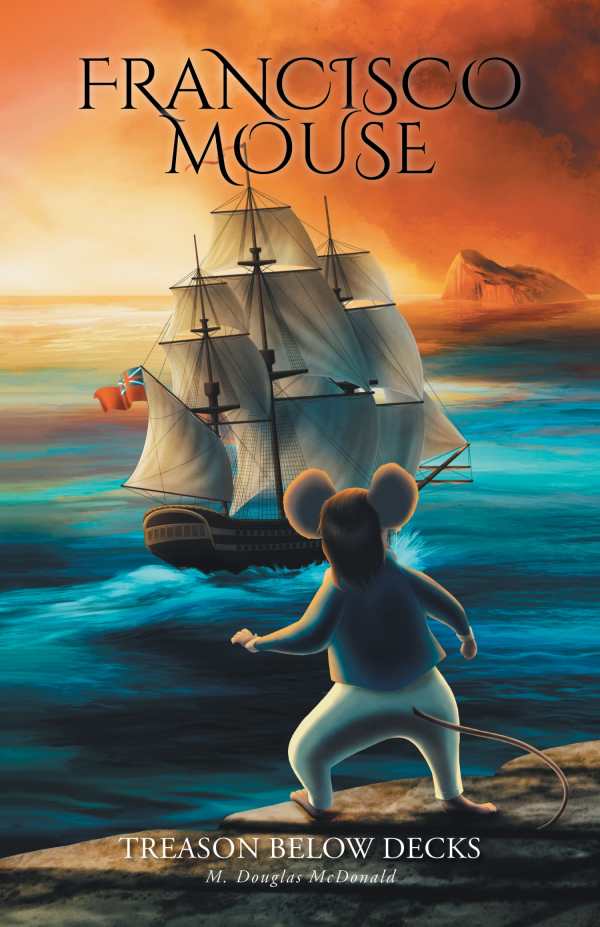Francisco Mouse
Treason Below Decks
A plucky mouse proves that one’s size does not determine one’s worth in the adventure-filled alternate history novel Francisco Mouse.
In M. Douglas McDonald’s adventure-filled children’s novel Francisco Mouse, an intrepid mouse endures imprisonment and danger in a daring bid to entrap the French navy.
Francisco’s early life was confined to the safety of Hampstead Heath, where he lived below a tree with his fellow mice. While Francisco treasures this quiet life with his grandparents, Mac and Bunty, he yearns for adventure too. Upon the disappearance of his friends, he sets out to see the world.
Francisco is soon impressed into the British navy. Aboard HMS Goliath, Francisco uncovers a dangerous plot to aid the French. He uses his wit and courage to protect the British fleet.
Francisco’s adventures are set in an alternate late eighteenth-century world marked by French and British conflicts. In this version of history, rodents and humans can communicate. Mice and rats work and fight alongside their human counterparts, though their interactions are not without conflict and prejudice, as rodents often serve beneath humans.
As a hero, Francisco exudes confidence, wit, and loyalty. The lessons and skills taught to him by his grandparents aid him in gaining his leaders’ trust and devising a plan to trick the traitors aboard the Goliath. On occasion, his confidence veers toward unpleasant cockiness, leading, for example, to a lack of prudence during an important conversation. This hubris aside, Francisco is charming, though.
The secondary cast includes a British naval intelligence mouse, Annie, who shows up when Francisco least expects her but most needs her. She works to trail a slippery French spy, Jacques Tremblant. Curmudgeon, the mouse who is captured and sent to the Goliath alongside Francisco, becomes Francisco’s faithful friend. Elsewhere, humans like Commander Hardy prove to be invaluable allies and admirable leaders for the mice.
Much of the story takes place aboard the Goliath, which bustles with activity, leading Francisco to marvel at the discipline required to maintain a navy. The ship and its activity are described with shipping terms like “orlop deck” and “bowsprit” whose meanings are clarified through context. And the lengthier descriptions of the action aboard the ships are complemented by pithy interactions, as when Curmudgeon calls Francisco an “impudent shrimp.”
The pace varies, exhibiting both high intensity (Francisco and his friends outwit French enemies) and humbler moments (Curmudgeon and Francisco endure scrubbing toilets together). But what remains constant is a sense that one’s stature does not determine one’s greatness—an idea stated so often that it verges on becoming redundant. Others question Francisco’s abilities and aptitude because he is a small mouse; he exceeds their expectations each time. And the leaders who model acceptance and respect to their subordinates, entrusting the mice with great responsibilities, are proven wise in the book’s triumphant end.
A plucky rodent sets out to sea, uncovering a treacherous plot and his inner strength, in the delightful children’s novel Francisco Mouse.
Reviewed by
Vivian Turnbull
Disclosure: This article is not an endorsement, but a review. The publisher of this book provided free copies of the book and paid a small fee to have their book reviewed by a professional reviewer. Foreword Reviews and Clarion Reviews make no guarantee that the publisher will receive a positive review. Foreword Magazine, Inc. is disclosing this in accordance with the Federal Trade Commission’s 16 CFR, Part 255.

